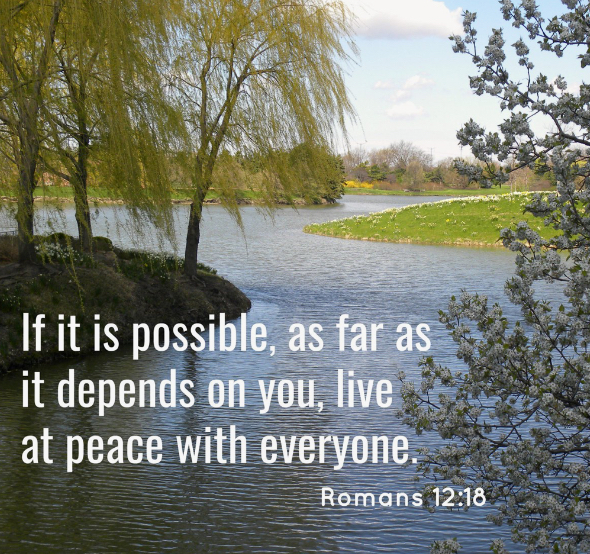Dr. I. David Byrd, March 15, 2020
“If I speak with the tongues of men and of angels, but have not love, I am become sounding brass, or a clanging cymbal. And if I have the gift of prophecy, and know all mysteries and all knowledge; and if I have all faith, so as to remove mountains, but have not love, I am nothing. And if I bestow all my goods to feed the poor, and if I give my body to be burned, but have not love, it profiteth me nothing. . . ” 1 Cor 13:1-13
The perniciousness of this world renders too many Christians invisible in our society. There is an assumption that only certain groups are “true” followers of Christ and represent the moral compass. This fatal flaw weakens our witness and causes nonbelievers to look at religion, in the vernacular of the young people, “side eyed“. Differences in doctrine causes Christians to treat each other in ways that cause the unbeliever to think – why would I want to be part of that? We often forget that every human and every human system is corrupted by sin. Sin causes us to place hope in earthly leaders and political parties in which no final hope exists. Moral or immoral has been replaced by winning arguments through political agendas that are creating a divided Church. We have forgotten the fact that Jesus came to win hearts, not arguments!
Please welcome our first guest writer, Robert L. Deffinbaugh who teaches us that,
“While all Christians now share in the “unity of the Spirit” (Ephesians 4:3), we do not all share in the “unity of the faith” (Ephesians4:13). We Christians disagree, in part at least, because as 1 Corinthians 13: 9-12 tells us, our knowledge is partial and incomplete. We tend to disagree over those things we do not fully know, even though we may believe we do know. Love is the means God provided for us to live in harmony and unity, even though there is a diversity of doctrine in matters which are not fundamental. Paul’s instruction on love then becomes absolutely vital to our Christian walk and to our Christian unity. If we want to discover what that difference is, we shall find it less in a distinctive semantic range of a particular word group than in the descriptions and characteristics of love given in the Scriptures.
Paul’s approach to teaching us about love is very different. He does not instruct us about the importance of distinguishing between Greek words for love. He begins in verses 1-3 by showing that spiritual gifts have only minimal value, unless they are exercised in love. In verses 4-7, Paul does not attempt to give us a very technical definition of love; instead, he describes love in a way which makes it very clear what biblical love looks like. And his description makes it glaringly evident that the Corinthians had indeed lost their first love.”
We see this today, as some Christians have adopted a self-fulfilling kind of love instead of the self-sacrificing love of Jesus. It is impossible to have this love unless God helps us set aside our own natural desires so that we can love and not expect anything in return. Here is what I mean:
- Love is patient vs. jumping to social media to pronounce it’s discontent.
- Love is kind vs. allowing attacks and sarcasm to infiltrate our language.
- Love does not envy vs. disguising our envy with spiritual criticism of other Jesus’ followers.
- Love is not proud vs. a failure to show compassionate servant leadership.
- Love does not dishonor others vs. falling into the trap of throwing shade at another person’s success to put in question how valid their excellence truly is.
- Love involves unselfish service to others vs. a focus on every person for themselves.
Sin causes us to think more highly of our selves than we ought. And our desires become our idols; strongholds! To assume “we” are right and “they” are wrong; Strongholds! To assume “we” know better what someone needs to do than “they” do; Strongholds! To believe “we” can win souls to Christ by controlling “them”; Strongholds!
These examples aren’t for just anyone. It’s the plea of an early church leader to Jesus’ followers. His plea? That those who follow Jesus may be extremely odd because of their care and concern for all people – which is only possible as we walk in the power of Jesus.
Jesus, please help me in these areas today. I sometimes get caught up and lose sight of the fact that our identity in and loyalty to you transcends political allegiance and personal agendas. Help me to love as you love. Our love for one another should be a shining example to the world.
In Jesus name we pray. Amen.








